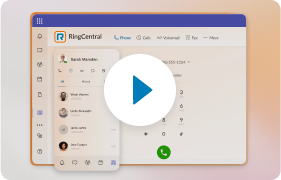Younger managers are quite optimistic about the effectiveness of mobile work and distributed workforces, it appears.

Attitudes on working at home break down on similar (i.e., generational) lines. Three-quarters of 25-to-34-year-olds are optimistic about the possibility of being productive at home – a proportion which drops to 67 percent for 35-to-44-year-olds and 57 percent for those over 45.
Interestingly, these figures were similar for morale. This may indicate that the younger age groups are just as happy on the road, working and collaborating remotely, as they in the office with colleagues.
So will we see a trend towards more flexible working in the years ahead? The likely answer is yes. Half of 18-to-24-year-olds said their employers would be implementing more flexible working hours for staff over the next two years. A third of 25-to-34-year-olds, meanwhile, work for an organization that is looking to de-emphasise the importance of its central office.
But an increase in virtual work won’t necessarily leave older (and perhaps more change-averse) workers out in the cold. Easy-to-use tools like RingCentral Office provide more flexibility for all workers, inside the office or out. Features such as conferencing can keep mobile staff connected, boost productivity and raise morale – benefits which are obvious, regardless of one’s age.
For many more details on the changing world of work, look to the infographic in this blog post.
And to learn more about RingCentral Office’s powerful mobile work capabilities, visit the Office product page.
Updated Aug 07, 2020











